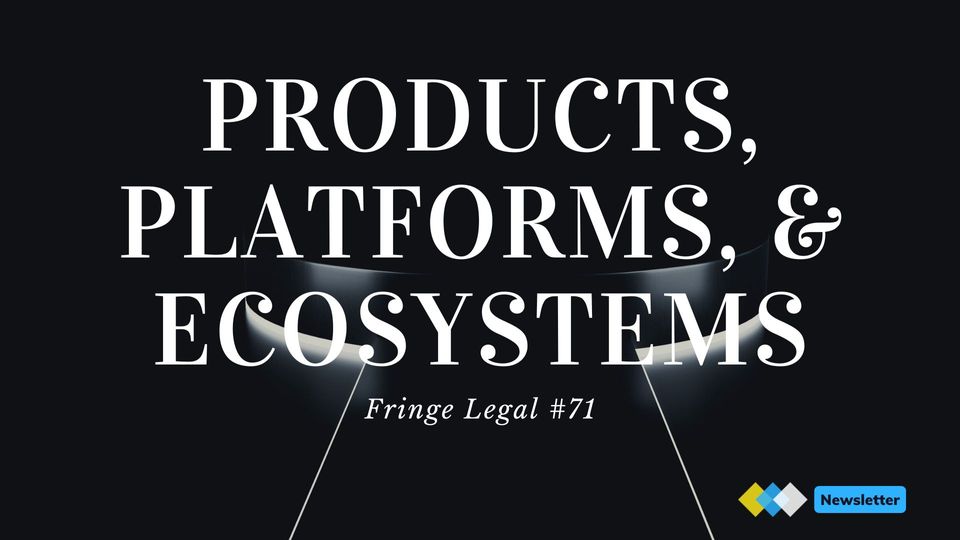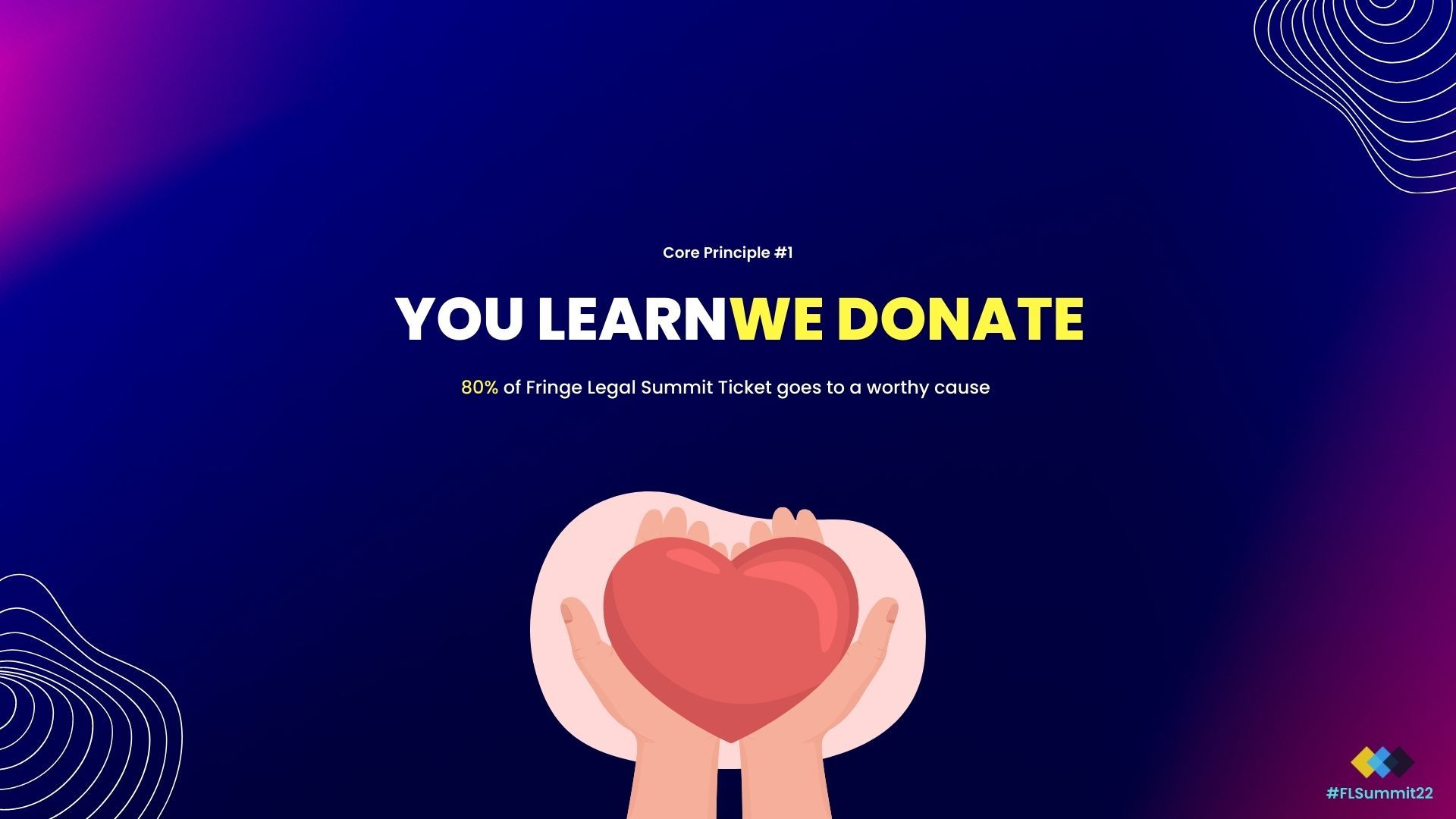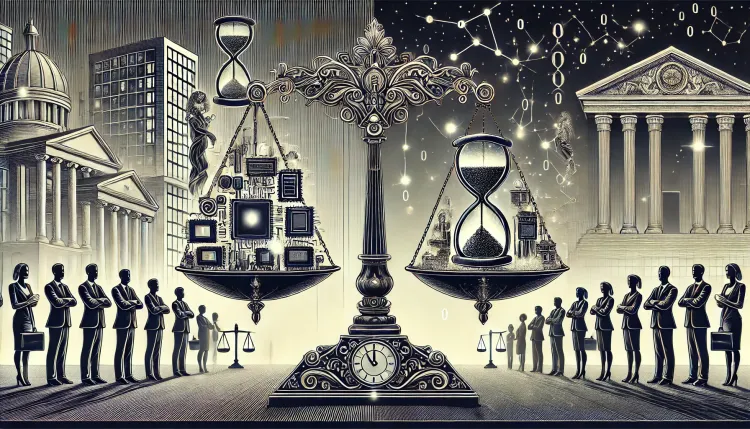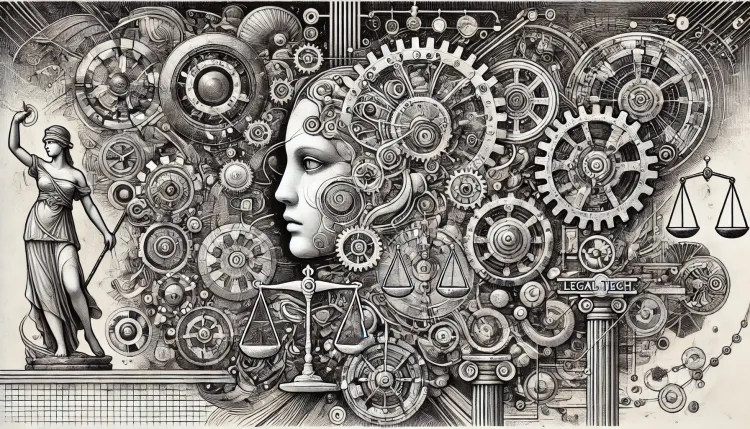Fringe Legal #71: products, platforms, and ecosystems

🎈 I turned 36 today - I’m not big into celebrating my birthday, so instead, I created a list of 36 learnings. Check it out on LinkedIn.
There’s a lot of talk about legal tech platforms, ecosystems, and products. People often tend to use these terms interchangeably, so is there really a difference?
Short answer, yes. While many companies position themselves as platforms (the perceived value is significantly greater), the truth is platforms aren't that common and are difficult to build.
Before we get there, let’s cover the basics.
- Product: value is provided by solving a singular problem for a specific group of users.
- Ecosystem: a linked group of products/businesses/people. The value is derived from the expansion of the pie and creating a unique value proposition that wouldn’t exist without the combination of the linked products.
- Platform: facilitates third parties transactions. It is a game of scale - bringing together buyers and sellers. Value is derived from reducing friction from the market and reducing the transaction cost.
The key question to ask is whether the application will be facilitating transactions? If not, then it's not a platform.
Fringe Legal runs on Ghost, a company that characterizes itself as a platform. In a recent product update, they paraphrased Bill Gates’ definition of a platform:
A platform is when the economic value of everybody that uses it, exceeds the value of the company that creates it. Then it’s a platform.
So why does everyone want to be a platform?
Platforms tend to be valued higher by markets/potential buyers.
They are “lighter” businesses (you don't have to build the product itself necessarily) and therefore have higher margins (supports scaling well). Airbnb is an example of a platform - they connect buyers (those looking to stay) with sellers (those that own a property).
AirBnB’s assets are relatively minimal - they don’t own the property, employ cleaners, etc. They are simply facilitating the transaction.
Additionally, they can start to build a moat around their business as they gather a critical mass of users. By having a high volume (and types) of properties listed, they attract more travelers. This, in turn, attracts a greater number of property managers.
When platforms become platform ecosystems
As a platform thrives, it’s natural for competitors to pop up. When competitors enter the market, platforms' strength - being a lighter business - also becomes a weakness. A competitor platform is easy to create (say VRBO in our Airbnb example) and could take users away by simply offering a lower transaction cost (e.g. maybe property managers keep a higher margin, and the cleaning & service fees are lower for users).
To compete, AirBnB can look to offer complementary services: guides and experiences. Now they have a unique value prop that is difficult to replicate because it needs competition on multiple fronts.
As you take in a vendor presentations or discuss SaaS products over dinner (people do that right!), listen out to see if they describe themselves as a platform or an ecosystem? ✌️
👀 Sneak peek: Conversation with Kai Jacob
I’m excited to publish my conversation with Kai Jacob (Partner at KPMG, Co-founder of Liquid Legal Institute). My only regret is waiting this long before hitting publish! Here are a few highlights.
What is Liquid Legal Institute
We consider ourselves a collaboration community of doers. So we like to do stuff, everything that we tackle and that we focus on should lead very fast to a result. Not just talking, doing.
Lack of collaboration in the legal market
...they helped us really to nail down the question of 'why is the legal market not collaborating'? That was a very interesting question because we are all sharing, we all do this together. We even have this concept of Co-opetition. Then why not work with competitors on something like setting standards? Why should we, in the legal market, cooperate? We are all making good money with this private wisdom that we have and built up over time. So why should we share? We also believe that without sharing, without creating true standards in the market, it will take ages to go through this digital transformation.
Struggling with digital transformation
We see that people are really struggling with digital transformation. They first don't understand why all this is happening. They're missing the digital mindset.
The idea that digital transformation is something positive. They do not get the link back to legal because, they are thinking that what we do is something that's handcrafted; it's something that relies on very special knowledge.
We do a perfect job of creating the perfect, beautiful contract that nobody else understands. We see beauty. And we see our role in protecting our company and defending our companies, defending our client's interests. It's just that the other side doesn't understand it.
So the digital aspect is that we need to get more out of this dormant contract that's archived in the file cabinet somewhere. To make it valuable information, accessible for the digital company that we are working in.
The whole idea of digital transformation is to make information that sits somewhere in an unstructured format, deep in contracts, more accessible.
We miss a huge opportunity for our profession to sit at the C-suite table and contribute to the overall goals of the enterprise. Second, everything moves so fast. We are overwhelmed with the speed of change. And we need to understand that change is constant and it will never go back to a slow motion mode. It will not happen. It will be fast. So we need to learn how to become adaptable, call it agile, call it whatever, but we need to adapt fast to a changing world. We need first to understand what is digital, and second how to deal with that in an agile working model.
Summit 22 - july update

As planning for Summit 22 continues, we published the July update. Two key call outs:
- Three core topic pillars: Environment, Social, Governance (ESG), Data & Privacy, and Knowledge & Innovation.
- Core values: 80% of ticket sales will go to a good cause, 80% speakers from diverse backgrounds, and make it accessible (it will be virtual so you can attend from anywhere, at a time which suits).
If you are interested in attending, speaking, or sponsoring and have questions, reply to this email and let me know. (Or you can buy an early bird ticket until the end of July).
🔗other highlights

- Why lawyer training is broken, and the 'aha' moment
- Encoding (moving data from short-term memory to long-term memory) is the the neglected part of effective learning
- Change management is THE problem to solve
- Innovation and change are easily confused
- Would law firms benefit from being run like Fortune 500 companies?
- Skill stacking: each skill you stack doubles your odds of success






Become a Fringe Legal member
Sign in or become a Fringe Legal member to read and leave comments.
Just enter your email below to get a log in link.